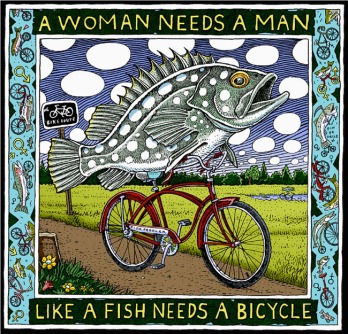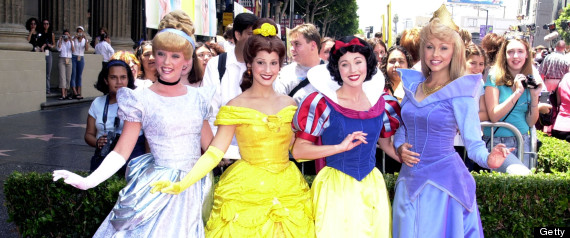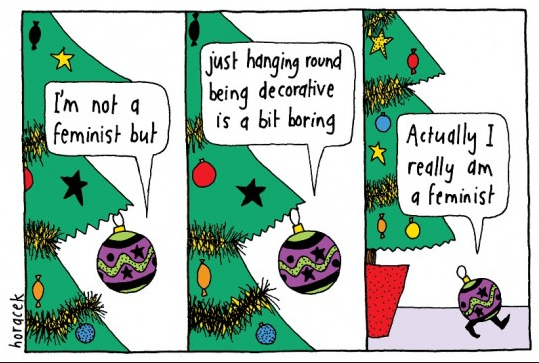I’ve been blogging for about five years now. In that time I’ve received a lot of correspondence from readers, whether it be thoughts, ideas, links, praise, criticism or even vitriol. Occasionally someone is asking for help, or for an answer to a question or dilemma. I try and reply to them all but I doubt I solve the problem in hand. So when I received this interesting email from Jim*, I thought I would share it with the QRG crew to see if we could put our heads together and come up with some suggestions and responses. Jim writes:
I read your article “Leaving The Sisterhood…” and felt compelled to contact you, I am somewhat a misogynist (In fact, I found your article when Googling something misogynistic…) but I don’t want to be (if for no other reason than I feel ashamed when I think of my mother whilst harboring misogynistic views), and I feel that I need a reasonable woman (i.e., yourself) to help me overcome it.
To describe my misogyny, common thoughts/feelings I have are:
– “Women use the old chestnut that women have life harder because only women have to suffer child birth, but how many times in your life have you been punched in the face in some meaningless fight you didn’t start or want?”
– “You talk about how you walk down the road frightened about being viciously raped. I walk down the road frightened about being viciously attacked. Why do you only think you are the only one who is at risk, or rather, why do you think I am not at risk? Because I’m male? How does being male help against a knife wielding maniac?”
– “You talk about male privilege. WHAT MALE PRIVILEGE? I have worked very, very hard against a lot of adversity to get where I am today. I resent being told it’s due to “male privilege””.
From my perspective females have ALWAYS had the privileges. The education system seems obsessed with boosting girls’ progress whilst COMPLETELY ignoring boys’ – in my school the female teachers (the majority) actively ignored boys who weren’t achieving, in fact some disliked me for doing boyish/male things despite the fact I worked hard. Legally, women are always presumed to be the innocent party and the men as guilty. Day to day socially men are expected to make their own way in life and criticized if they don’t, whereas society seems more than happy to help out a struggling woman. If a man needs emotional support he needs to learn to suck it up because nobody cares, a woman just needs to cry before people flock around to offer support.
Can you offer any suggestions/help? I don’t want to have this anger and resentment of women (I want a happy relationship with a lovely girl!) but I can’t find or think of any method to overcome it.
QRG replies:
Dear Jim,
Thank you for your email. I know it is difficult to speak up and articulate negative feelings about feminism, which, inspite of being presented as marginalised, actually seems to permeate all aspects of our culture, politics and relationships.
I had thought of trying to be witty and comical in my reply to you, to send up the often very worthy, poe-faced ‘agony aunt’ role. But others have done that much better and much funnier than me. And your very pertinent questions warrant a serious response.
First off, I have read your letter a couple of times (it’s an extract posted here) and I can’t find anything remotely ‘misogynist’ in what you’ve said. The word ‘misogyny’ which means hatred of women, has become so overused in contemporary discourse as to have been rendered meaningless. If some feminists are to be believed we are drowning in a sea of ‘misogyny’ that is rife in pop videos, Shakespeare, figures of speech, advertising etc etc. As if anything men do or make is probable ‘misogynist’ if we look closely enough. It’s difficult, but if you try and stop yourself from judging yourself and men in general by these faulty and unfair standards, you might feel a bit better!
What you have written to me is not misogyny, but rather a clear set of examples of how feminist dogma twists reality into something where women are always presented as innocent victims of life’s inequalities and men are always presented as the big bad wolves. You know from your own experience this isn’t true. If you haven’t read it already, I recommend Neil Lyndon’s 1992 book No More Sex War (updated version on kindle here) which covers some of the same issues.
So, on an intellectual level, my answer to your questions is simple: you’re not a misogynist and you should follow your own instincts and keep a sense of realism and rationality in the face of feminist untruths. But I think you also raise some more difficult problems. It’s all very well believing you are right, but how do you deal with the inevitable resentment that comes from having your viewpoint dismissed and discredited by what I do think is the ‘dominant’ feminist culture? And how do you proceed to form and keep relationships with women without compromising your beliefs?
I won’t pretend that is easy. But then relationships never are, so kow-towing to ideologies you disagree with won’t guarantee you get the girl and live happily ever after anyway! I still think it is best to stick to your guns and just be yourself, even if you scare off some women that way. I have been heartened lately by growing numbers of young men and women challenging feminist dogma, such as the women against feminism and some of the gamergate folk.
Also, it may not seem like it at times, but there’s more to life than gender politics. If you focus on things you enjoy and get to know people with common interests, political/ideological differences might not matter so much. I still have some feminist and pro-feminist friends, because there are other things we share and talk about like music, writing, the great outdoors, film. I’ve found networks like MeetUp excellent for finding people to do stuff with.
Good luck and thanks for sharing your thoughts with me and the QRG blog readers!’
————————————————
*not his real name
Image at top: Sad young man on a train by Marcel Duchamp











